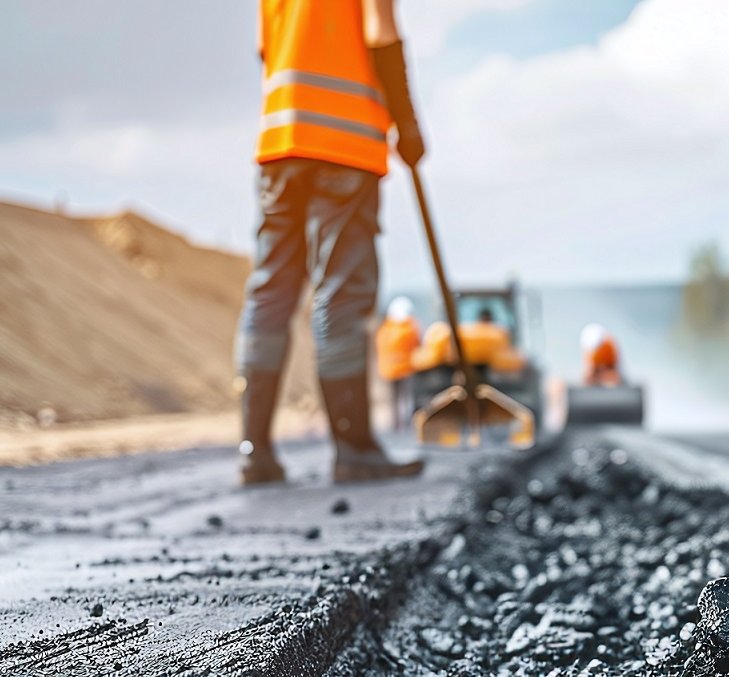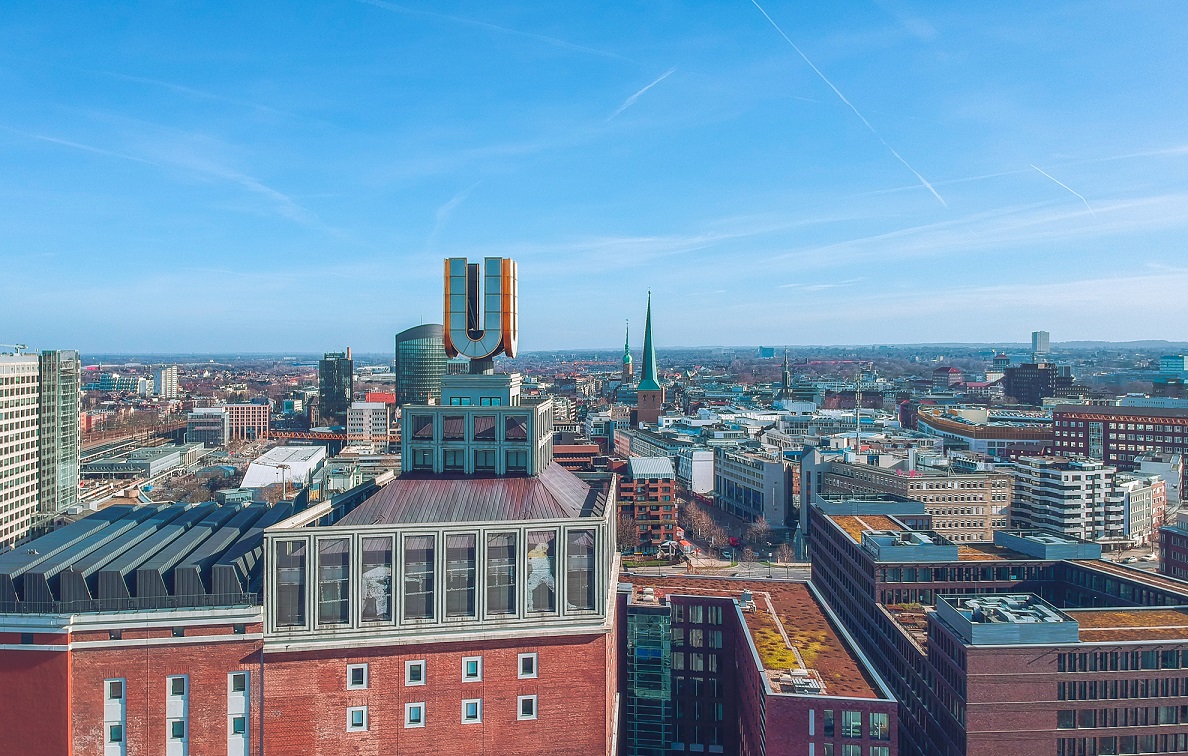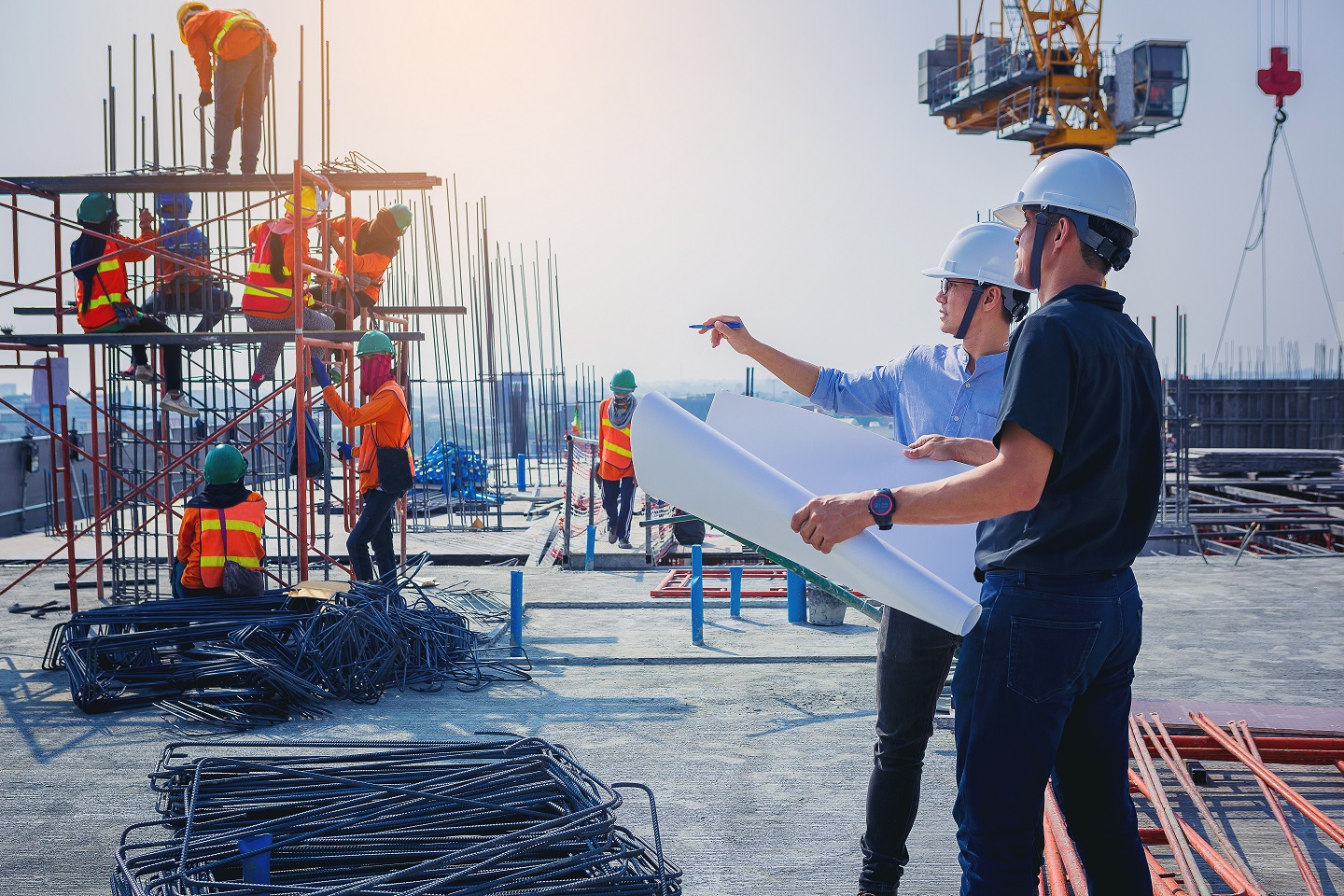

Turning old into new and future-proof
Property development at DSW21
Status: 13.03.24
In another article, we asked what our rail network has in common with the topic of "property development" at DSW21. We revealed the answer straight away: we have civil engineers at work in both areas.
But why is property development an issue at DSW21?
As a transport company, but also as the "Dortmunder Stadtwerke AG" group, DSW21 owns a lot of property and land in Dortmund. From the head office to the bus and light rail depots with various workshops to the customer centre, we are spread across the city of Dortmund. Of course, it sometimes happens that a location is relocated for reasons of space, for example, and buildings can no longer be used. What do you then do with them and the developed land? Ideally something useful. For example, create space for something new.
Simply building on land is not an option. It should make sense and be authorised under building law. So the future use should also be one that takes Dortmund forward. This can result in a wide variety of things. New locations for industry and logistics, for example, to strengthen Dortmund's economy. Or residential neighbourhoods to give people a new home with new housing estates.
This is where our colleagues from "Real Estate Project Management" come into play to breathe new life into brownfield sites and prepare them for development. Our team of architects and civil engineers have their work cut out for them.

What is no longer needed has to go. Making space is the motto here, so demolition work is often the first step. And before buildings can grow upwards again later, the first step is to dig deeper. A thorough assessment is needed to see what is lying dormant. World War II unexploded ordnance? Contamination with pollutants? Of course, this cannot remain the case and the soil must be made fit for the planned future use. The future use will then determine what needs to be put into the ground. For example, supply lines in the new access roads, which have to be planned so that electricity and water can flow at the end - and waste water disappears discreetly and mobility for all road users is guaranteed again. Only when all this preliminary work has been done can the new development really begin. However, our colleagues usually leave that to others.

What was quickly said here in one paragraph is of course a little more time-consuming in real life. Planning, coordination and monitoring are just a small part of the job that our colleagues do.
They accompany the entire process from the contract for property development to the marketing of the property. This includes the planning and coordination of the pipeline operators and the supervision of tenders and award procedures as well as the review of specifications for the award of contracts for civil engineering, ground improvement and demolition work. This is followed by coordinating the work of specialist planners and construction companies, all the while keeping a watchful eye on adherence to cost and schedule plans. As "real estate project managers", our colleagues act as client representatives, with budget responsibility for their projects.
Fancy something new?
Sounds like a lot of responsibility? That's right. But new team members are well prepared for this with a thorough induction programme. However, a little professional experience is required as a basis. In return, however, you will end up with your very "own", cityscape-defining result. For example, something like the Hohenbuschei training centre, with which the colleagues have given BVB a second home. Or the upcoming residential development project "Degginghöfe", which will give many people from Dortmund a new home.
We are currently looking for active support for this project. You can find more information here.